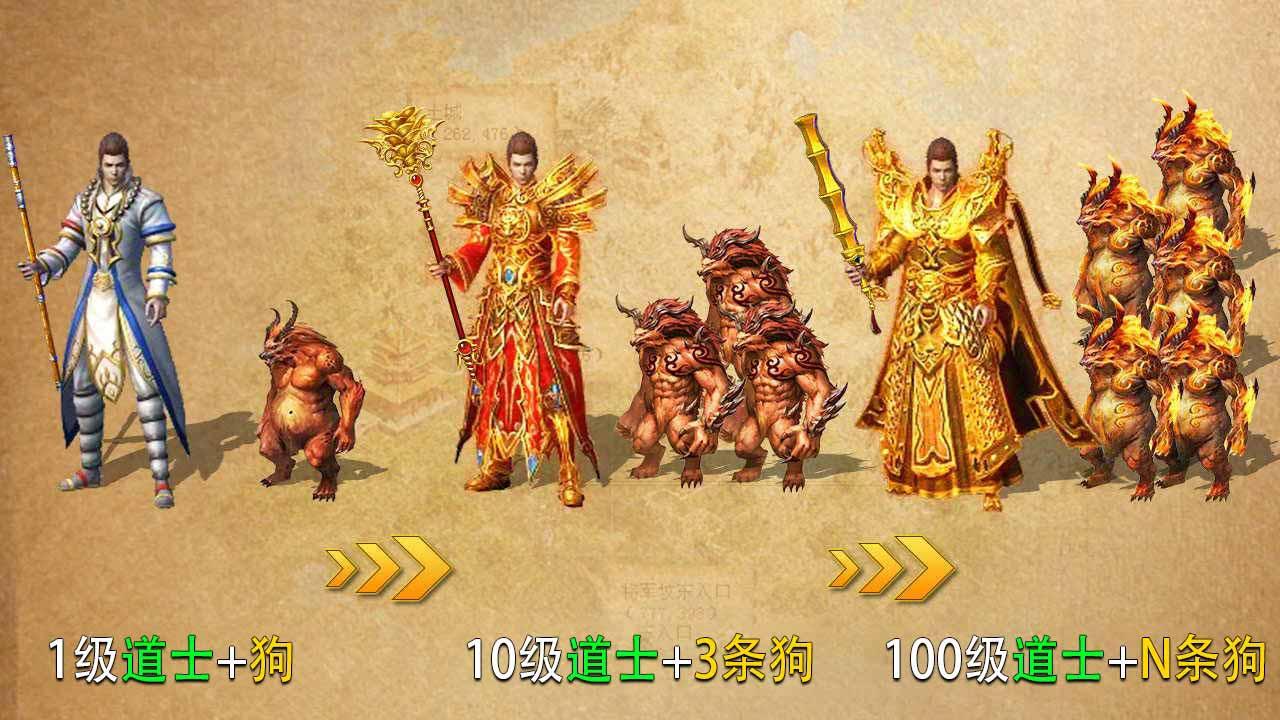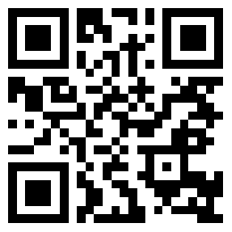华裔美国人回应:中国身份和美国身份,哪个更认同(组图)
很多人虽然流着中国的血,长相也是地道的中国人,但是从气质,价值观,文化等方面来判断的话,这就是一个美国人。
比如谷爱凌等名人,就算自己说中文毫无压力可言,来到中国我们还是会觉得他们是外国人,精神上的不同,比外貌的不同要更难被理解和接受。
在美版知乎Quora上,美国网友提问道:作为一名华裔美国人,你更认同自己的中国身份还是美国身份?我们看看他们的观点。

问题

美籍华裔网友戴维•潘的回答
For the first half of my life, I lived in China (born in China) and the United States. Therefore, I will give a more objective view on this.
我的前半生有一半生活在中国(出生于中国),一半生活在美国。因此,我将对此给出更客观的看法。
Personally, I do not think I am an American, because I believe that the most important basic values in my philosophy are not the so-called freedom of speech, freedom of thought, personal freedom, etc. in the West. Because of the constant immigration, Americans are not a single ethnic group.
就我个人而言,我也不认为自己是美国人,因为我认为在我的哲学中最重要的基本价值观并不是西方所谓言论自由、思想自由、个人自由等。由于不断的移民,美国人并不是一个单一的种族群体。

The problem is that in the process of growing up, I encountered the following problems: Americans usually don't like China very much, and what's worse, the media and even educational institutions are constantly spreading rumors and attacking China, or brainwashing people to think that China is a terrible place. For example, I have a geography teacher in Grade 9 who "teaches" her students that in China, parents still put sand under the baby's body as diapers, which will squeeze their shoulders and damage the baby's limbs. Yes, there are many such comments in a top blue ribbon high school in California.
问题是,在成长过程中,我遇到了以下问题:美国人通常不太喜欢中国,更糟糕的是,媒体甚至教育机构都不断造谣抨击中国,或洗脑让人们认为中国是一个可怕的地方。例如,我有一位九年级的地理老师,她“教导”她的学生,在中国,父母仍然会把沙土放在婴儿身子下方当尿布,这会挤压到他们的肩膀,使婴儿肢体受损。是的,在加州一所蓝丝带顶级高中,这样的言论有很多。
Oh, she also said that Hong Kong people are "different" from mainland people because they once lived under British management. Yes, she still stubbornly defended the British occupation of Chinese territory. Needless to say, I left the class with tears after explaining and arguing with her. Especially at that time, I thought I was a Chinese, and I was very proud of it. I would never take this insult lightly.
哦,她还说,香港人与内地人“不同”,因为他们曾在英国的管理下生活,没错,她仍顽固地为英国对中国领土的侵占而辩护。不用说,我在同她解释争辩后含泪离开了课堂。特别是在那个时候,我认为自己是中国人,并为此非常自豪,绝不会对这种侮辱掉以轻心。
In addition, there are other bad things that are still going on. For example, Chinese Americans have become scapegoats for almost everything. Even the police know. If they had to choose between Native Americans and Chinese, they would prefer Native Americans. Most of the time, this is not even "racism". They just know the fact that the Chinese will not cause any trouble, have too many contacts and resources to provoke anything, and will remain silent about any injustice.
除此之外,还有其他不好的事情至今仍在继续,比如华裔成为几乎所有事情的替罪羊。就连警察都知道。如果他们必须在美国本土人和中国人之间做出选择,他们会偏向美国本土人。很多时候,这甚至不是“种族主义”,他们只是知道一个事实,即中国人不会制造任何麻烦,不会有太多的人脉和资源来挑起任何事情,而且会对任何不公正的事情保持沉默。

For example: Oh, as an Asian, you must be 200 points higher than white people and 400 points higher than black or Hispanic people to enter the school you want? Then go and study hard. Oh, you are an Asian heterosexual male and want to be an engineer, but schools like MIT "don't want to have Asian males anymore"? No problem. Let's economize on food and clothing, and then send our son to an extremely expensive private elite boarding school (almost all white people). This school will have the priority. Asians usually do this: we always obey, not demand change.
举个例子:哦,作为一个亚洲人,你必须比白人高200分,比黑人或西班牙裔高400分才能进入你想要的学校?那就去努力学习吧。哦,你是一个亚裔异性恋男性,想成为一名工程师,但像麻省理工学院这样的学校“不想再有亚裔男性了”?没问题,让我们节衣缩食,然后把我们的儿子送进一所超贵的私立精英寄宿学校(几乎都是白人),这所学校将享有优先选择权,亚洲人通常是这样做的:我们总是顺从,而不是要求改变。

Most importantly, my parents will constantly tell me not to contact Americans too much, because "they will never really care about you. The Chinese will care more about you", which is not entirely correct, but I am very inclined to say that, after all, "it is not my race, its heart will be different".
最重要的是,我的父母会不断地告诉我,不要把自己和美国人联系得太多,因为“他们永远不会真正关心你。中国人会更关心你”,这不是完全正确的,但我十分倾向于这种说法,毕竟“非我族类,其心必异”。
Therefore, in a word, I didn't have "American pride" at that time, and I never felt that I would really become "one of them".
因此,总而言之,当时我没有“美国自豪感”,也从未觉得自己会真正成为“他们中的一员”。
But later I found that it was not impossible. Because I found that, on the other hand, Chinese people will be as ruthless as some white people. Of course, they will chat with me according to my appearance, but after a short interaction with me, they will judge whether I am "one of them". I speak without an accent and have different hobbies. Even from the way I dress, they can see that this is different: I like European mainstream and culture and fashion, and they prefer East Asian style clothes. So they can immediately identify that I am not in the same circle with them, and then exclude me.
但后来我发现,这不是不可能的。因为我发现,另一方面,中国人也会像一些白人一样,可能同样无情。当然,他们会根据我的长相和我搭讪,但在与我短暂互动后,他们会判断我是不是“他们中的一员”。我说话不带口音,爱好也不一样。即使只是从我的穿着方式来看,他们也能看出这是不同的:我喜欢欧洲主流和文化时尚,他们更喜欢东亚风格的衣裳。所以他们可以马上分辨出我其实和他们不是一个圈子的,然后把我排除在外。

The most important thing is that when I encounter difficulties, when I need help, I get a lot of help from Westerners in my life. Later, I didn't know how to become estranged from East Asians. Although my mother said that I was just deliberately ignoring the Chinese, I didn't actually avoid anyone, because all her friends were Chinese, and most of my close friends were not, but they were often not Americans, but from other countries, such as European countries, and sometimes the Middle East.
最重要的是,当我遇到困难时,当我需要帮助时,我在生活中得到了很多西方人的帮助。后来我不知道怎么就对东亚人变得慢慢疏远起来,尽管我母亲说是我只是故意忽视中国人,但我实际上并没有回避任何人,因为她的所有朋友都是中国人,而我的大多数密友不是,但他们往往也不是美国人,而是来自其他国家,比如欧洲国家,有时是中东。
I think you can call me a cosmopolitan. For my mother, I have too many "foreign acquaintances". If I take these friends home for the night, she will be very angry. Chinese? No problem, non Chinese? They were immediately alert and became very suspicious.
我想你可以说我是个世界主义者。对我母亲来说,我有太多的“外国熟人”。如果我带这些朋友回家过夜,她会特别生气。中国人?没问题,非中国人?他们立刻警觉起来,变得非常可疑。
So after all this, the wisdom I gained is that patriotism is complete as an ideology. Identity politics is evil. The only way you should accept for yourself is you. Don't let anyone tell you who you are or should be. So, if I am not a Chinese, not enough to be a Chinese, not enough to be an American, then who am I? I'm a person, that's all. Why must I be Chinese or American, or both? I am neither realistic nor possible.
所以在经历了所有这些之后,我得到的智慧是,爱国主义作为一种意识形态是完整的。身份政治是邪恶的。你应该为自己接受的唯一方式就是你。不要让任何人告诉你你是谁或应该是谁。所以,如果我不是中国人,不足以成为中国人,也不足以成为美国人,那么我是什么人?我是个人,仅此而已。为什么我必须是中国人或美国人,或者两者兼而有之?我既不现实,也不可能。

美籍华裔网友胡江南的回答
I personally agree with Chinese people. Although I have lived in the United States for most of my life and acquired American citizenship several years ago, I still feel that I am obviously different from Americans. I have grown up in China and the United States, and I must feel that I am in the great gap between the two countries; I can't really understand American culture, but I can't understand some aspects of Chinese culture. However, despite staying in the United States for so long, as an Asian American, there is a different feeling, that is, there is an embarrassing identity recognition.
我个人更认同中国人。尽管我在美国生活了大半辈子,几年前就获得了美国公民身份,但我仍然觉得自己与美国人有着明显的不同。我在中国和美国都长大了,我肯定觉得自己处于两个国家之间的巨大鸿沟之中;我无法真正理解美国文化,但中国文化的某些方面我也无法理解。但尽管在美国待了这么久,作为亚裔美国人,有一种与众不同的感觉,那就是有种尴尬的身份认知。

I came to America when I was very young, and I didn't know English. In a sense, I was lucky enough to be young enough to learn English quickly, so when I was in junior high school, I could express myself more fluently than other non-native speakers. When I was young, I didn't realize the difference between my friends and me, living in a "white" city. I felt like I was being subtly suffocated, like a white man being stuffed into my throat, because I rarely saw people like me. But even if I try to act more like a "white man" and try to assimilate with my peers in school, differences still exist.
我很小就来到美国,不懂英语。从某种意义上说,我有幸足够年轻,能够快速学习英语,所以在我读初中的时候,我比其他不是以英语为母语的人能更流畅地表达自己。当我小的时候,我没有意识到我和朋友之间的差异,生活在一个“白色”的城市里。我感觉自己被微妙地窒息了,就像白人被塞进了我的喉咙,因为我很少看到像我这样的人。但即使我试图表现得更像“白人”,以努力与学校里的同龄人同化,差异仍然存在。
I am grateful that my parents did not insist that I immediately assimilate with the white people around me, but insisted that I understand our own Chinese language and culture. Although my public life focuses on integrating with people, I feel more free in my private life and can express things in the language that people I meet privately think is "cool" and "foreign". Even though I know more English than I know Chinese, nothing makes me feel like I came back to China to see my family. It's very gratifying to go out and see people who look like you and feel that you don't need to be different to fit in.
我很感激我的父母没有坚持让我立即与周围的白人同化,而是坚持让我了解我们中国自己的语言和文化。虽然我的公共生活专注于融入人群,但我在私生活中感到更加自由,能够用我在私底下遇到的人觉得“酷”和“外国”的语言表达事情。即使我懂的英语比我懂的中文多,但没有什么能让我感觉像回到中国见到亲人时一样。走出去,看到和你长得很像的人,感觉你不需要通过与众不同来融入其中,这是非常令人欣慰的。
Strictly speaking, I am an American. But this is not a part of me; I find my Chinese ancestry and being an Asian are more important in my identity, because I live in a very white place. As I can slowly accept my Asian identity, I can find more consolation in the white ocean. Now, I am no longer afraid to stand out.
严格来说,我是美国人。但这不是我的一部分很重要;我发现我的中国血统和作为一个亚洲人在我的身份中更为重要,因为我生活在一个非常白人的地方。随着我能够慢慢接受自己的亚洲身份,我能够在白色的海洋中找到更多的慰藉,现在,我不再害怕站出来了。

美籍华裔网友约翰尼•赵的回答
Frankly speaking, as a Chinese living in the United States, I think this problem is ridiculous. I have met many Chinese Americans in the place where I live, that is, the San Jose Bay Area. I mean, there are many Chinese Americans living here.
坦率地说,作为一个生活在美国的中国人,我觉得这个问题很可笑。我在我居住的地方见过很多华裔美国人,那就是圣何塞湾区。我的意思是,这里生活着很多华裔美国人。
From what I have seen, I can safely say that most of them, especially those born or raised in the United States, have nothing to do with China or Chinese people. Are they white Americans? Of course not, because there is a very clear Asian American identity, which is different from white people in many aspects. But not being white does not mean they have relations with China.
从我所看到的情况来看,我可以放心地说,他们中的大多数人,尤其是在美国出生或长大的人,与中国或中国人没有任何关系。他们是美国白人吗?当然不是,因为有一个非常明确的亚裔美国人身份,在很多方面都不同于白人。但不是美国白人并不意味着他们与中国有关系。
Most of them do not speak Chinese, or at least do not speak with satisfactory proficiency. They can't and can't read Chinese. They did follow some Chinese traditions, but mainly because their parents (usually the first generation immigrants) followed them, and they grew up in this way. this is it. All their Chinese ancestry seems to have been imposed by the first generation of immigrant parents.
他们中的大多数人不会说中文,或者至少不会说令人满意的熟练程度。他们不会也不会读中文。他们确实遵循了中国的一些传统,但主要是因为他们的父母(通常是第一代移民)遵循他们,他们就是这样长大的。就是这样。他们所有的中国血统似乎都是由第一代移民父母强加的。

In addition, their behavior is 100% the same as that of other Americans of color living in urban areas. Once they have their own families, they have no motivation to abide by these traditions, nor are they interested in passing them on to the next generation. Therefore, even this superficial Chinese character will disappear in the third generation.
除此之外,他们的行为100%与居住在城市地区的其他有色人种美国人一样。一旦他们有了自己的家庭,他们就没有动机遵守这些传统,也没有兴趣将这些传统传给下一代。因此,到了第三代,甚至这种肤浅的中国性也将消失。
To be honest (maybe a little harsh), I don't understand why many first generation Chinese immigrants forced their children to learn Chinese and follow Chinese traditions. If you are born with Chinese ancestry, so you can speak some Chinese, you will not succeed in the United States. Your child may be better off learning Spanish or even Latin. They won't, and you won't let them "return" to China to live there.
老实说(也许有点苛刻),我不明白为什么许多第一代中国移民强迫他们的孩子学习中文,遵循中国传统。如果你生来就有中国血统,因此会一些汉语,你就不会在美国取得成功。你的孩子学习西班牙语甚至拉丁语可能会更好。他们不会,你也不打算让他们“回到”中国,在那里生活。
Why do you impose these things on them just because you want them to be more like you? There are many German, Italian, Irish and Dutch Americans, but they will not force their children to learn German, Italian, Irish or Dutch because these languages are not so useful in the United States. In most cases, their children's time is best spent elsewhere.
为什么仅仅因为你想让他们更像你,就把这些事情强加给他们?有很多德语、意大利语、爱尔兰语、荷兰裔美国人,但他们不会强迫孩子学习德语、意大利语,爱尔兰语或荷兰语,因为这些语言在美国没有那么有用,在大多数情况下,他们的孩子的时间最好花在其他地方。
Learning a language, especially a language like Chinese, is inevitably difficult and time-consuming for an English speaker, so it is impossible for your child to speak Chinese skillfully through weekend school. In the end, most of them don't use it, and then they forget all their Chinese knowledge.
学习一门语言,尤其是像汉语这样的语言,对于一个说英语的人来说,不可避免地是困难和耗时的,所以你的孩子不可能通过周末学校就能熟练地说汉语。他们最终大多不使用它,随即会忘记所有的中文知识。
I do not see similar problems in Germany, the Netherlands or Hispanic Americans. Of course, all hyphenated Americans are Americans, and they identify with Americans more. In most cases, this is their only self-identity.
我没有看到类似的问题出现在德国、荷兰或西班牙裔美国人身上。当然,所有连字符的美国人都是美国人,他们更认同美国人,在大多数情况下,这是他们唯一的自我认同。







 +61
+61 +86
+86 +886
+886 +852
+852 +853
+853 +64
+64


